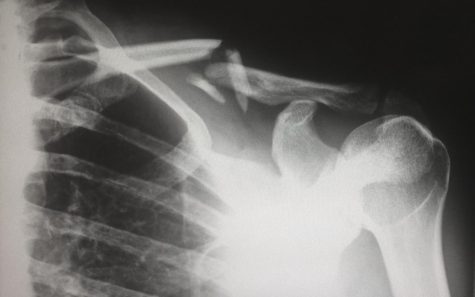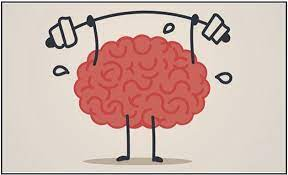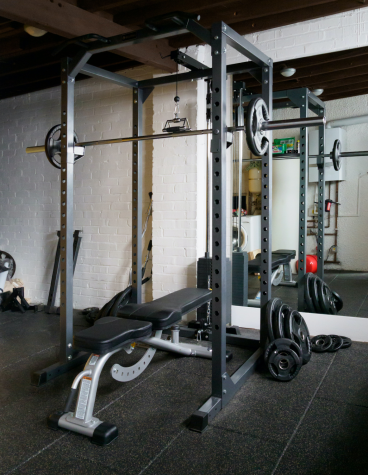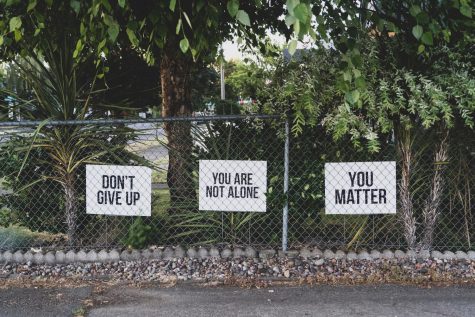The Truth About Social Anxiety
Have you ever felt stage fright when you’re about to give a presentation or speech? Do you get nervous in big groups of people or shy away from conversations? If you can answer yes to any of these questions, you might have social anxiety!
I’m sure friends and family have called you an introvert, but it might just be more than that. As a senior in high school, I have learned to recognize and cope with my own anxiety. While I do not claim to be a doctor, I think the information presented here will help you see signs in yourself and teach you how to cope in healthy ways.
When dealing with social anxiety, we tend to shy away from big events, which can actually exacerbate the situation and make us close-in on ourselves instead of opening up. For years, I’ve always been a little standoffish; it’s just human nature to me. I’ve never been the type to run up and talk to anyone or hug my friends; it just felt weird. Even worse, I used to have a stutter when I talked for too long or my voice would tremble because my mind kept telling me that everyone was listening to me so I was afraid to make a mistake or sound foolish. These feelings made me think that there was something wrong with me or that I was too different to ever fit in with my peers. How do you know if you are truly dealing with social anxiety, though? Here are some tell-tell signs you may notice when preparing to speak in public or participate in social events: sweating, spacing/blanking out, panicking, nausea, the need to leave/hide, becoming red faced, or even shaking.
I never really sought help for these issues either. I never went to speech therapy or a therapist in general. Maybe I would have dealt better with my issues if I had went to therapy or at least opened up to a school counselor or teacher about how I was feeling. Now it’s my Senior year and I’m doing a bit better. I can carry on longer conversations with people and don’t shy away from as many public situations and people as I did prior to this year. A few things have helped me along the way, including making the right friends. My current friends “get me” ; they understand my anxiety and don’t press me to be too uncomfortable in situations. Additionally, I found a hobby that I enjoy. I cope a lot by drawing. It eases my mind. I understand, though, that these strategies will vary for everyone. Here are some things that might help you if you do feel you suffer from social anxiety:
- Don’t fear failure or overthink
- Listen to music to calm your nerves
- Think of topics for the conversation, not the whole script in your head
- Relax, but fidget if you have to
- Take a deep breath
- Take small steps in the conversation
- Talk about something you’re passionate about
- You don’t have to make eye contact initially; instead, look at their cheek or to the side; it’s okay not to look directly at the person you are speaking to if it makes you feel better
- Work on raising your self-esteem by accomplishing something difficult or challenging
- Reward yourself for taking steps in the right direction (i.e. go to the movies, eat your favorite meal, etc.)
Social anxiety is very common and not something to be ashamed of or to hide. In fact, the more you embrace it and talk to people about it, the more comfortable you will become expressing yourself. Remember, I am not a medical doctor and the symptoms and tips I have shared come from my own research and dealing with anxiety for so many years. If your anxiety is becoming too much for you to control or is making you depressed, please see a doctor.
Sources
“Coping with Social Anxiety: The Dos and the Don’ts.” Medical News Today,
MediLexicon International, www.medicalnewstoday.com/articles/326211.
“Facts about Social Phobia.” Mental Help Facts about Social Phobia Comments,
www.mentalhelp.net/anxiety/facts-about-social-phobia/.
“How To Deal With Social Anxiety: Social Anxiety Explained.” THIS WAY UP, 27 Sept.
2020, thiswayup.org.au/how-do-you-feel/shy/.
Jennings, Kerri-Ann. “16 Simple Ways to Relieve Stress and Anxiety.” Healthline,
Healthline Media, 28 Aug. 2018,
www.healthline.com/nutrition/16-ways-relieve-stress-anxiety.






